'Lao Pan' Disseminator of China's Huge Changes to World
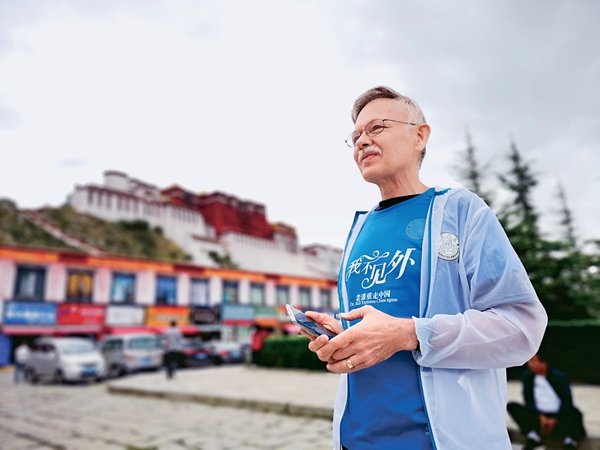
William N. Brown, from the United States, is a business professor with Xiamen University, in Southeast China's Fujian Province. He is well-known to many of Xiamen's residents, who affectionately call him "Lao Pan," or "old Pan." Brown once described his deep ties with China as his "prearranged destiny." China, the distant Asian nation on the other side of the Pacific Ocean, lured him to its shores; once here, it continued to fascinate him for 30-plus years, and it made him an eyewitness to and disseminator of the huge changes during China's development.
Letters from Across Pacific Ocean
Brown in 1988 resigned as senior vice-president of First American National Securities, and he moved his family to Xiamen, where he has since taught MBA (Master of Business Administration) courses at Xiamen University.
In 1992, he became the first foreigner in Fujian Province to receive China's permanent residence permit. In addition to teaching, he has helped 13 Chinese cities, including Xiamen and its neighbor Quanzhou, win medals in the International Awards for Livable Communities.
In October 2018, Brown's book, Off the Wall — How We Fell for China, was published. The book is composed of 47 letters written by Brown about his life in Xiamen, which were sent to his family and friends in the United States. Upon completing his book, Brown sent a copy to Chinese President Xi Jinping, and he was surprised when he received a reply from Xi.
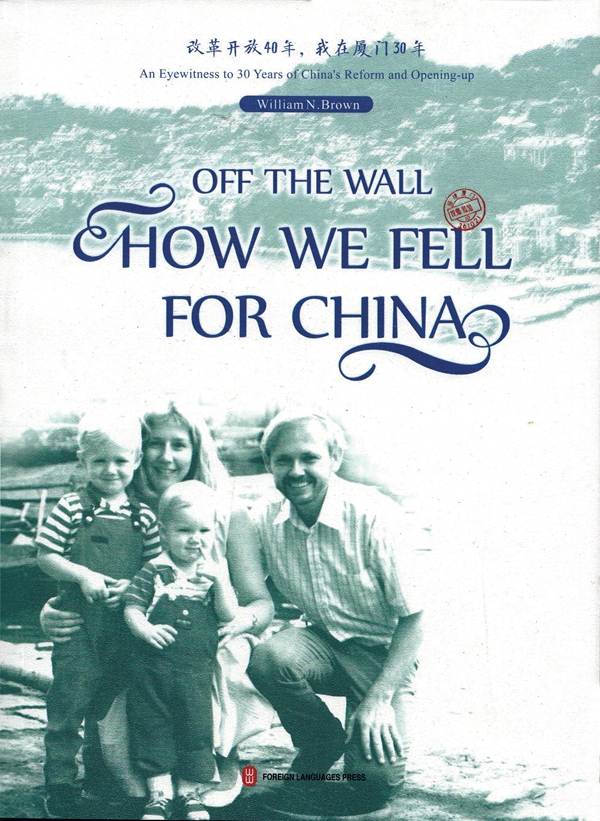
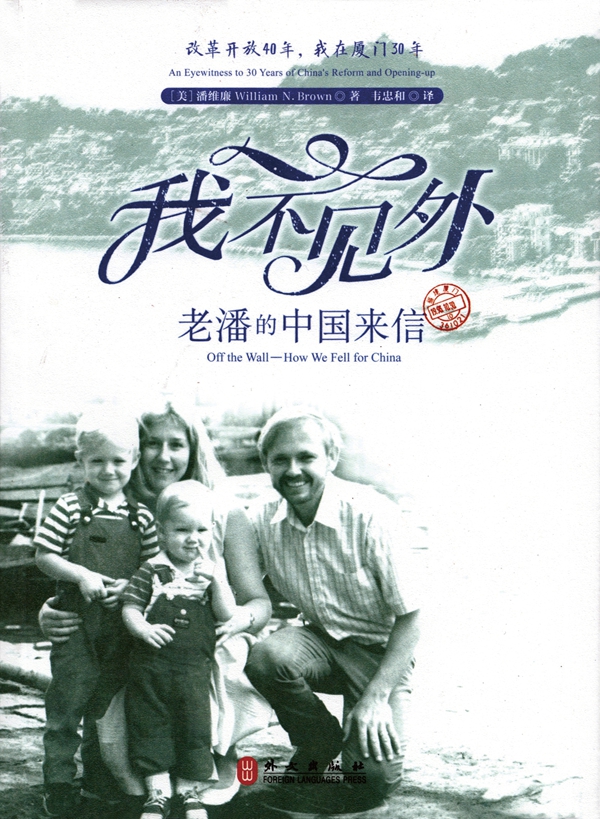
The letters published in Brown's book detail the changes in Xiamen and some other areas of China, from a foreigner's eyes. Of the 47 letters, 30 were written between 1988 and 1990. Chen Yuanhui, one of Brown's students during the 1980s, is now managing director for Asia at a leading Australian company, Pepper Financing Services Group. When she studied at Xiamen University, Brown often invited students to his home on weekends to sing, chat, make dumplings and barbecue. Letter No. 27, entitled "Turning the Tea Table," and Letter No. 34, "When Silence Is Not Golden," detail Brown's reflections on education in China. He summarizes the way to teach Western culture in a "silent" Chinese class, including how to encourage introverted Chinese to raise their hands and answer questions.
The book also includes a collection of Brown's family photos, such as photos of himself, with his wife Susan, and with their two sons, the wedding photo of his son Matt and his daughter-in-law, and a photo of a pile of letters covering his desk.
Brown's family stories, filled with deep affection for China, coincide with some of the most remarkable changes in Chinese society over the past three decades. In this way, a vivid –– and real –– picture of China is presented.
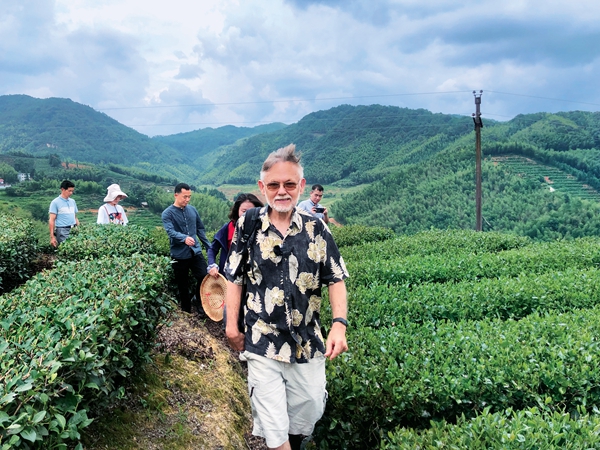
CPC's 100 Years of 'Routine Miracles'
In late July 2021, Brown posted an article on the China Today website, and in that article he shared his understanding of the 100 Years of "Routine Miracles" achieved by the Communist Party of China (CPC). On July 1 that year, a grand ceremony was held in Beijing's Tian'anmen Square to commemorate CPC's centenary. During the July 1 ceremony, Xi, also General Secretary of the CPC Central Committee, declared the completion of the country's first centenary goal — building China into a moderately prosperous society in all respects.
"Almost any of China's great achievements that Xi mentioned in his address would be considered miracles in any other country. Yet in China, they do not surprise me." Brown wrote in his article. "With the same creativity and perseverance in which the country carried out its targeted poverty-alleviation campaign and contained the COVID-19 pandemic, China now leads the world in fighting desertification, deforestation, food and water insecurity, illiteracy — virtually all of the global challenges that face every country."
Brown explained how, since the founding of the People's Republic of China in 1949, poverty reduction has been the top priority of the country, with the objective to greatly improve people's lives, and how pragmatic Chinese leaders have fought poverty throughout the decades.
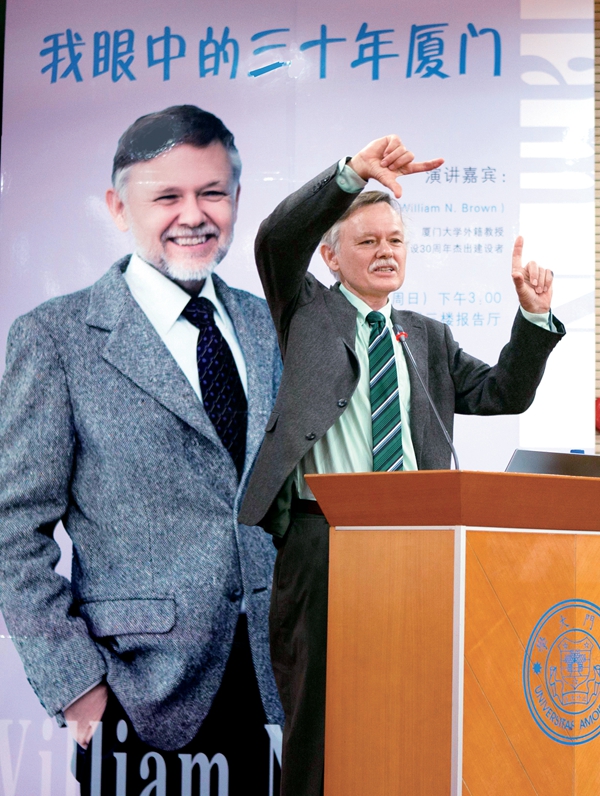
During the past three decades, Brown has driven — nearly 200,000 kilometers — throughout China. He has visited Northwest China's Ningxia Hui Autonomous Region, which was once deemed utterly hopeless by the United Nations (UN). "But early on, the ever-pragmatic Chinese adopted the pragmatic strategy of 'roads first, then riches,' as they believed transportation infrastructure is fundamental to development. Very simple, very pragmatic — and it worked," Brown wrote.
In 1994, Brown spent three months driving nearly 40,000 kilometers around China. Then, more than 20 years later, in 2019, it took him a mere 32 days to retrace the same route. "Even those once-poorest villages in Ningxia now have concrete roads that lead right to the villagers' doorsteps. The most amazing thing, to me at least, was that not only did people in remote valleys in Tibet have access to electricity and the Internet, but they engaged in thriving online e-commerce!" Brown recalled.
During his trip, Brown asked the people he met across China why their lives had improved. Many gave answers like, "Life is good because policies are good." He then asked, "Why are policies good?" Many of the people replied, "Because the government knows our needs and cares for us."
Wrote Brown: "Even in remote villages, I saw photos of Xi Jinping, who had visited them to understand the unique root causes of their poverty, and then suggested solutions — even as he had done as a young leader in Fujian 30 years ago. I marveled that he set his foot in Pingtan Island 20 times, when he worked in Fujian to help fight poverty. Thanks to his dedication, when I visit there now, I can take the bridge instead of a boat."
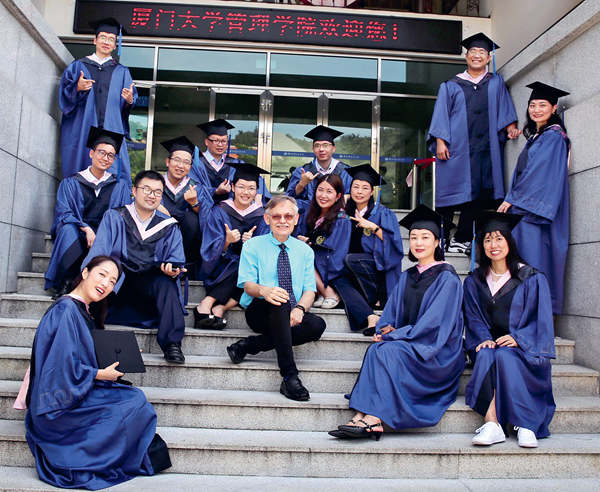
In Brown's opinion, no other nation in history has ever tackled poverty "so single-mindedly, and for so long." He believes this is precisely the reason why China, the country with the world's largest population, has accomplished what would be a miracle in any other nation. But in China, it was simply inevitable because of that old principle — "You reap what you sow."
With the Belt and Road Initiative (BRI) proposed by Xi, China is applying its pragmatic method, "roads first, then riches," in other nations, especially on the continent of Africa. Brown says many of his African friends are grateful for China's BRI, which has brought them hope.
"My youngest son, who lives with his wife and children in Africa, doing volunteer medical and social work, says that in the remotest areas of Africa, he sees Chinese working alongside Africans to help build highways, railways, dams, bridges, ports, and airports," Brown wrote in his article. He concluded that article with: "History proves that a strong China is not a threat to peace, but rather a force for it — and perhaps the only hope for the underdeveloped world that is still struggling in extreme poverty. So, I congratulate China on achieving its first centenary goal of moderate prosperity, and I applaud its attempt to share its experience with the rest of the world."
Photos Supplied by William N. Brown
(Source: China Today/Women of China English Monthly April 2023 issue)
Please understand that womenofchina.cn,a non-profit, information-communication website, cannot reach every writer before using articles and images. For copyright issues, please contact us by emailing: website@womenofchina.cn. The articles published and opinions expressed on this website represent the opinions of writers and are not necessarily shared by womenofchina.cn.








.jpg)

 WeChat
WeChat Weibo
Weibo 京公网安备 11010102004314号
京公网安备 11010102004314号